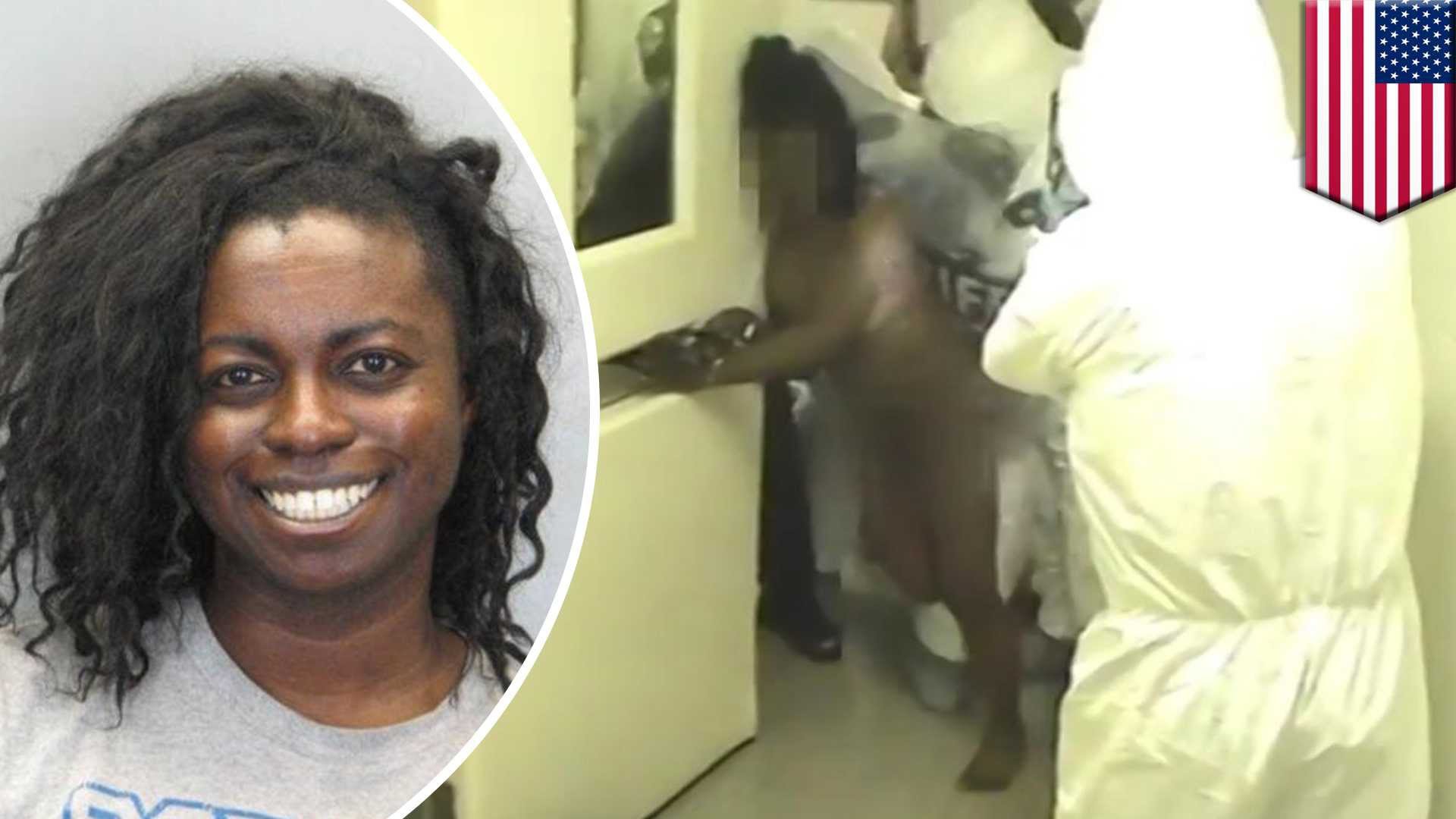
Dear Mr. Earley,
I am writing about Natasha McKenna and her death in the Fairfax County Detention Center. (I have provided you my contact information so you can confirm who I am and my credentials, but I ask that you withhold my name for reasons that will become obvious.)
Why was she “managed” by trained professionals in a manner that was so callous & inhumane? Why was she shocked repeatedly with a Taser while posing no serious threat to the men who had her on the floor? How were the deputies able to overlook and disregard her pathetic, desperate cries, whimpers and gasps?
How did this happen? There were six men directly involved and several others looking on, only a few feet away. Any one of them could have interrupted what was happening, but there’s no indication that anyone objected. No one said, “Put away the Taser – we don’t need it.” Nobody said, “One time with the Taser is enough!” (or two times, or three, or even four). There was no sign that anyone said, “She’s scared, this isn’t working. Let’s stop and think about a better way to get this done.” Equally important is the fact that the Lieutenant in charge didn’t stop to say, “This is going bad. I’m going to call my Captain for guidance, or my Major, or my Colonel, or the Sheriff.”
Why did this happen?
Are these men (and women) sadists? Are they sociopaths? Are they inexperienced? Are they stupid? Are they racist murderers?
I know them personally, I work with them and my answer to these questions is “No, no, no, no and no.” I’ve had conversations with them in our workplace about our kids, about our jobs, and, in some cases, we’ve shared both laughs and secrets. We are not bad people. The deputies that did this are not much different truthfully than most of our friends and neighbors – your friends and neighbors too. We are ordinary Fairfax citizens.
So how could these deputies treat another human being this way?
In order to find the right answer, we need to ask the right question. This is not a question of good vs. evil. The deputies are neither heroic professionals who put themselves in harm’s way and exercised admirable “restraint” in performing their jobs. Nor are they inhuman, cruel brutes who enjoyed inflicting harm on Natasha.
The right question is “How could they treat a fellow human being this way?”
I’ve spent many nights thinking about this and sadly, from their perspective, the right answer is that Natasha McKenna was not a human being. She was an inmate. She was a non-compliant inmate. She was a “security” risk. She was a problem. And they were there to implement the solution to that problem.
The Sheriff’s Office motto is “Honor, Courage, Service.” All of us were indoctrinated and marinated in a culture that emphasized “safety and security” and protecting each other above all else. Simple. Nothing personal. Just business. It’s us versus them from the moment they enter the building. We are trained to be dispassionate, to not take our work home with us when we leave our jobs.
I remember from my days in college two famous experiments. You can look them up on the Internet. The Stanford Prison experiment and experiments by a psychologist named Stanley Milgram.
Milgram was the guy whose experiments followed the arrest and trial of Adolph Eichman. They were driven by the questions raised by some as a defense for Nazi atrocities. How far will ordinary people go when following orders from an authoritarian leader? Pretty damn far, Milgram discovered. A high proportion of students in his experiments showed a willingness to administer what they believed were painful or even dangerous electrical shocks to innocent individuals when they were instructed to do so by a person in authority.
The Stanford Prison experiment showed what happened when 24 volunteer students were divided into two groups of 12 each and were told that one group would be the guards and the other group would be inmates in a mock prison built in the basement of the Stanford Psychology building. The student volunteers (both guards and inmates) very quickly became so hardened, so brutalized and so traumatized in their roles, that the experiment had to be ended early because of the real fear of violence & psychological damage to participants.
Natasha McKenna had a mental illness and she was black. These two factors can’t be ignored because each of them clearly further marginalized her. You can train deputies for thousands of hours about mental illness and systemic racism but still not change behavior.
How much training is needed to train someone to NOT repeatedly shock a defenseless person whose life you are legally and morally responsible to protect? How much training is needed to train someone to speak up to protect another human being from being killed?
The missing pieces that would have saved Natasha’s life were empathy, compassion, simple common sense and the courage to speak up and intervene. I think we need to begin emphasizing these in our training.
What jails, prisons and police need to prevent future victims is the development of a different culture and mindset. Treating others as we would have them treat us would be a good start. There needs to be a culture of reason and compassion as well as bravado and firepower. And there needs to be principled and courageous leadership from those who are entrusted to manage these organizations.
A start is seeing those inside our jail not as prisoners and inmates, but first as people. Until we begin doing that, we will continue seeing incidents such as this one.



